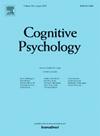Updating of information in working memory: Time course and consequences
IF 3
2区 心理学
Q1 PSYCHOLOGY
引用次数: 0
Abstract
Working memory updating is the process that replaces outdated content in working memory by new content. This requires removing outdated information and encoding new information. It is still unclear whether removal and encoding run sequentially or simultaneously. We explored this question in two experiments investigating the time course of removal and encoding and their consequences for the functioning of working memory. The updating task we used involved three phases: the initial encoding, the processing, and the retrieval phase. Across four conditions, we manipulated whether the processing phase involved encoding, removal, neither, or both (i.e., updating). In Experiment 1, processing time was self-paced, and we measured processing times in each condition. In Experiment 2, we measured accuracy as a function of available processing time. After the processing, participants were asked to recall the final item for each position in the retrieval phase. In combination, the results of the two experiments show that the time required for updating was shorter than the sum of encoding and removal time. Moreover, it was nearly the same as the time taken for either the encoding or removal process, indicating that encoding and removal are concurrent processes during updating. Additionally, we analyzed the proportion of correct responses and of different error types with a memory measurement model to investigate the effects of encoding and removal for information held in working memory. The analysis revealed that removal involves unbinding the outdated information from its context. However, despite the weakened bindings of information to its initial context, the outdated information still remains activated in working memory. Other information held in working memory benefitted little from removal of outdated information.
工作记忆中的信息更新:时间过程和后果。
工作记忆更新是用新内容取代工作记忆中过时内容的过程。这需要删除过时的信息并对新信息进行编码。目前还不清楚删除和编码是顺序运行还是同时运行。我们在两个实验中探讨了这个问题,研究了去除和编码的时间过程及其对工作记忆功能的影响。我们使用的更新任务包括三个阶段:初始编码、处理和检索阶段。在四种情况下,我们操纵处理阶段是否涉及编码、删除、不涉及或两者都涉及(即更新)。在实验1中,加工时间是自定的,我们测量了每种情况下的加工时间。在实验2中,我们测量了准确度作为可用处理时间的函数。处理后,参与者被要求回忆每个位置在检索阶段的最后一个项目。综合两个实验的结果表明,更新所需的时间小于编码和去除时间之和。此外,它与编码或删除过程所花费的时间几乎相同,这表明编码和删除是更新过程中的并发过程。此外,我们还利用记忆测量模型分析了正确反应比例和不同错误类型的比例,以探讨编码和去除对工作记忆信息的影响。分析显示,删除涉及将过时信息从其上下文中解除绑定。然而,尽管信息与初始上下文的绑定减弱了,过时的信息仍然在工作记忆中被激活。删除过时信息对工作记忆中的其他信息几乎没有好处。
本文章由计算机程序翻译,如有差异,请以英文原文为准。
求助全文
约1分钟内获得全文
求助全文
来源期刊

Cognitive Psychology
医学-心理学
CiteScore
5.40
自引率
3.80%
发文量
29
审稿时长
50 days
期刊介绍:
Cognitive Psychology is concerned with advances in the study of attention, memory, language processing, perception, problem solving, and thinking. Cognitive Psychology specializes in extensive articles that have a major impact on cognitive theory and provide new theoretical advances.
Research Areas include:
• Artificial intelligence
• Developmental psychology
• Linguistics
• Neurophysiology
• Social psychology.
 求助内容:
求助内容: 应助结果提醒方式:
应助结果提醒方式:


